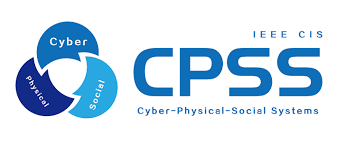IEEE Smart World Congress 2025
Women in the Smart World Forum
Calgary, Alberta, Canada
August 20 - 21, 2025
Important Dates
First Submission Cycle
Proposal Deadline
April 20, 2025
Proposal Notification
April 25, 2025
Second Submission Cycle
Proposal Deadline
May 20, 2025
Proposal Notification
May 25, 2025
Conference Dates
August 18 - 22, 2025
Session 1: Presentations
August 20, 1:00pm - 2:30pm
Session 2: Panel Discussion
August 21, 2:15pm - 3:45 pm
Please note that the reporter of the first cycle accepted proposals can apply for the IEEE WIE Travel Grant (https://wie.ieee.org/grants-scholarships/travel-grants/)
Organizing Committee
General Chairs
Ying Zhang
Northwestern Polytechnical University, China
Binbin Zhou
Hangzhou City University, China
Sara Saeedi
University of Calgary, Canada
Executive Chairs
Khawla Alhasan
Open Arab University, Kuwait
Rosy Xi Luo
Beijing Raygen Innovation Technology Co., Ltd, China
Kaoru Ota
Muroran Institute of Technology, Japan
Joanna Siebert
Harbin Institute of Technology, Shenzhen, China
Executive Co-Chairs
Saher Javaid
Japan Advanced Institute of Science and Technology, Japan
Tatiana Cardona
Saint Louis University, USA
Ismini Psychoula
University College London, United Kingdom
Steering Committee
Runhe Huang (Chair)
Hosei University, Japan
Zhi Jin
Peking University, China
Join us at the IEEE Women in the Smart World Forum 2025
Women in the Smart World Forum are dedicated to discussing the role of
women in shaping and thriving in the rapidly evolving landscape of
smart technology and innovation. From artificial intelligence to the
Internet of Things, from cybersecurity to renewable energy, women are
playing increasingly vital roles in driving progress and innovation in
smart technologies. By leveraging the artificial intelligence
technologies, many tasks could be more efficient, greener, and safer,
such as autonomous driving, smart agriculture management, and
healthcare monitoring.
Whether you're a seasoned professional, an aspiring student, an
entrepreneur, or simply interested in the technology and gender
equality, this forum is the place for you to learn, and share your
insights, challenges met, and experiences gained on smart world.
Moreover, this forum also promotes the building of meaningful
connections and new collaborations amongst participants.
Discussion Topics
Topics of discussion may include, but are not limited to:
- Women in STEM (Science, Technology, Engineering, and Mathematics)
- Gender diversity and inclusion in the tech industry
- Challenges faced by women in pursuing careers in smart technology
- Success stories and role models in the field
- Strategies for fostering a more inclusive and supportive environment
- Opportunities and trends in emerging intelligent technologies
- The impact of smart technology on women's lives and empowerment
- Education and mentorship initiatives for women in tech
- Ethical considerations and responsible innovation
- Breaking stereotypes and overcoming biases
Submission Guidelines
The participant must submit the following as a single pdf file:
- Title of the proposal
- Abstract (200 words)
- Description of the proposal (no more than 2,000 words)
- The participant's profile, including name, affiliation, email address, and a brief biography (200 words)
Submit the proposal to our email address: women.in.smart.world.forum@gmail.com
Please note that authors of accepted proposals must register and present in person or virtually at the conference.
Women in a Smart World Session I - Setting the Stage Paper Presentations
Telus Convention Centre - Macleod Hall B & C
Wednesday August 20, 2025
1:00pm - 2:30pm
Discover how we can build inclusive environments through interdisciplinary human-AI partnerships.
This session highlights insights and research by women who are
advancing human-AI collaboration in industry and academia that remove
barriers to develop and create a more inclusive and equitable smart
environment. Through interdisciplinary lenses of smart world
applications—including technology, ethics, design, and social
impact—presenters will explore topics such as inclusive algorithm
development, AI data ecosystems in agriculture, community health,
gender-aware smart infrastructure, and equitable access in education
technologies. These papers showcase how diverse professional and
academic perspectives and disciplines can converge to ensure that
innovations are responsive to the needs of all individuals that
benefit a smart world.
This session serves as a springboard for a panel discussion on the
next day and will further explore the integral role that diversity
plays in human-AI interactions.
The presentations will provoke a deeper dialogue on how we can
collectively shape AI ecosystems that prioritize fairness,
representation, and responsible innovation.
Words of Welcome
Introduction of Women in the Smart World
Dr. Runhe Huang, Hosei University, Deputy Director of Hosei Library, Japan
Launched in 2024 by founding chairs Prof. Runhe Huang (Hosei University, Japan) and Prof. Zhi Jin (Peking University, China), the Women in the Smart World Forum was created to spotlight women’s contributions to emerging technologies such as AI, IoT, and smart systems. Following its successful debut, the forum returns in 2025 in Calgary, Canada, as part of the IEEE Smart World Congress. The forum fosters global dialogue on gender diversity, innovation, and leadership, offering a collaborative platform for women across academia, industry, and policy to share insights, challenges, and achievements in shaping a smarter world.
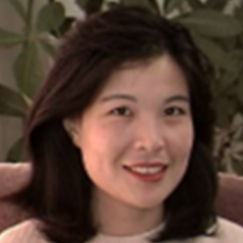
Dr. Runhe Huang
Hosei University, Deputy Director of Hosei Library, Japan
Biography
She received her B.Sc. in Electronics Technology from the National University of Defense Technology, China, in 1982, and her Ph.D. in Computer Science and Mathematics from the University of the West of England, UK, in 1993. She is a full professor at Hosei University, Japan since 2003. She served as the head of the Department of Computer Science from 2008 to 2010 and currently holds the position of Deputy Director at Hosei University Library.
Presentation Abstracts and Presenter Biographies
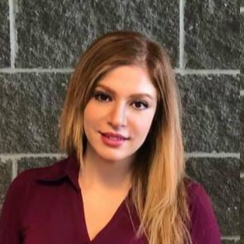
Dr. Sara Saeedi
University of Calgary, Canada
Inclusive IoT: Building a Smart World for Everyone
The Internet of Things (IoT) is rapidly transforming how we live,
work, and interact with technology. Yet, as cities and systems become
smarter, ensuring inclusivity, diversity, accessibility, and cultural
relevance remains a critical challenge. This presentation explores how
IoT can be designed with context-awareness—adapting to users'
environments, cultural norms, and diversity—to serve different
communities and bridge socio-economic gaps.
Drawing on research in smart cities, environmental monitoring, and
AI-enabled sensor networks, this talk will share inclusive projects
ranging from a postpartum mental health app leveraging IoT and LLMs,
to international methane emission detection frameworks, the SCIRA
smart city initiative for interoperable urban systems, and a
participatory air quality sensing that empowers citizens through
IoT-enabled volunteer sensing. These case studies illustrate how
multidisciplinary collaboration can create IoT ecosystems that are not
only intelligent but also inclusive, equitable, and truly
human-centered—empowering all members of society to benefit from the
smart technologies shaping our future.
Biography
Sara Saeedi is an Assistant Professor in Electrical and Software Engineering at the University of Calgary. Her research focuses on AI, IoT, digital twins, and smart geospatial technologies for applications in agriculture, health, and climate resilience. She actively contributes to advancing ethical AI standards in engineering and technology fields.
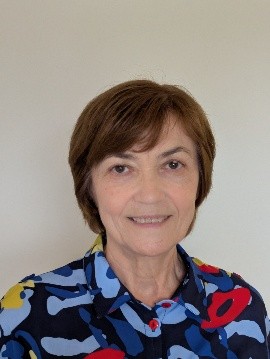
Dr. Rossitza Marinova
Concordia University of Edmonton, Canada
AI and Ethics: Preparing the Next Generation for Responsible Decision-Making
This presentation emphasizes the critical need for human oversight in AI decision-making processes to ensure that ethical considerations are consistently supported. The insights shared are informed by extensive, hands-on experience in academic settings, within the context of a smart world ecosystem. In education, fostering critical thinking and ethical decision-making when working with AI applications is essential. By teaching students to critically assess the impact of AI on society and engage with it responsibly, we are preparing them to navigate an increasingly AI-driven world while upholding values of fairness, transparency, and accountability.
Biography
Rossitza Marinova has been a faculty member at Concordia University of Edmonton since 2004. Before joining Concordia, she worked as a research scientist in the software development industry in Canada and in a government research laboratory in Japan. Dr. Marinova is a Senior Member of the IEEE.
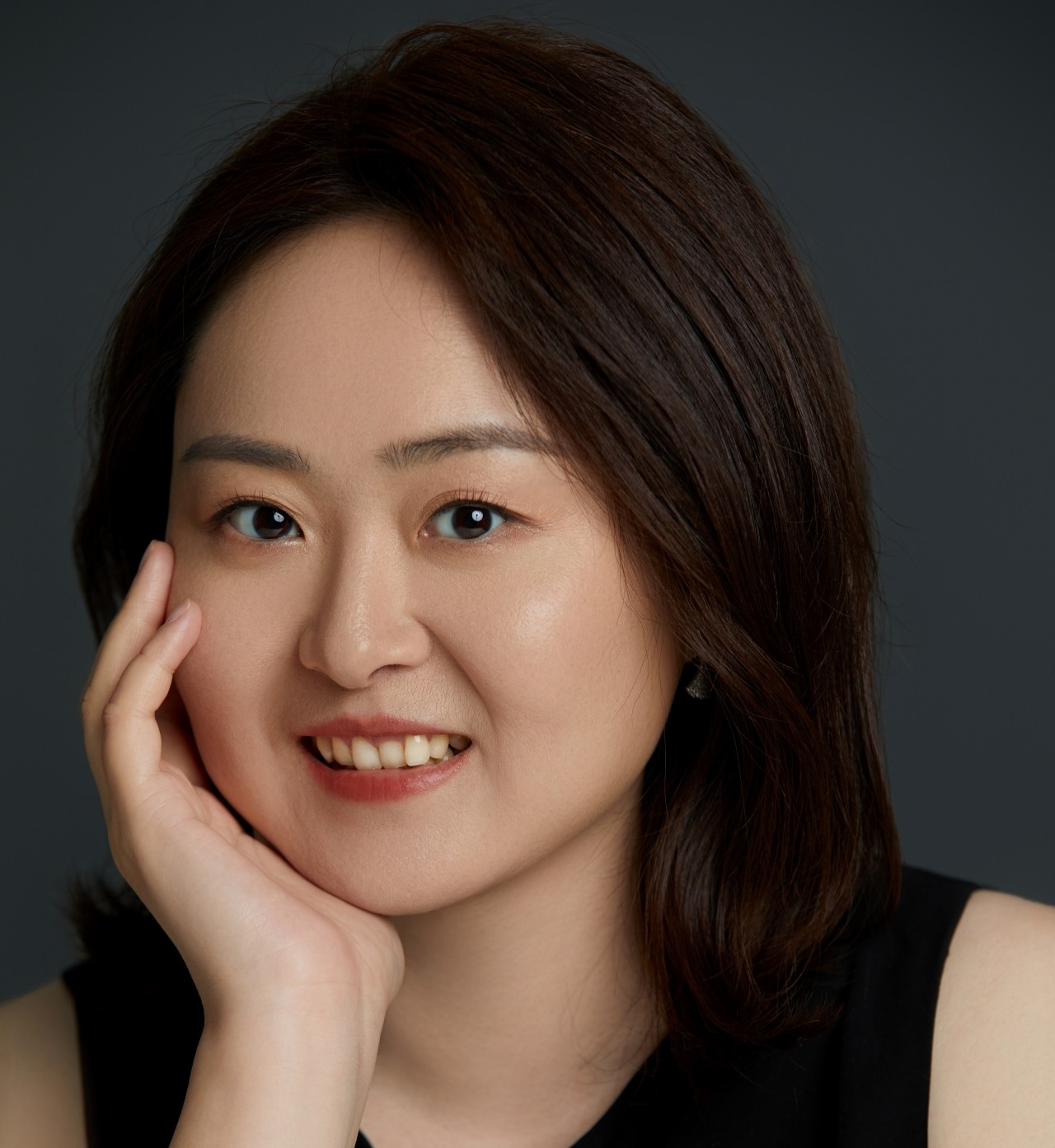
Dr. Rosy Luo
Founder and CEO, Raygen Innovation, China
Leadership in Convergence: How Human-AI Partnerships and Ecosystem Thinking are Driving Global Robotics
The global expansion of small and medium-sized enterprises (SMEs) in
the robotics sector is frequently hindered by a critical bottleneck:
the scarcity of localized, high-fidelity data required for robust
algorithm training and validation. This presentation introduces
'Ecosystem Leadership,' a novel framework that addresses this
challenge by forging deep Human-AI partnerships.
We present a case study demonstrating how, through this model, we
leverage NVIDIA's Isaac Sim and OpenUSD platforms not merely as tools,
but as collaborative 'AI Partners'. This partnership generates
synthetic data that is both technically precise and culturally
localized, effectively overcoming the data dilemma and enabling
robotics SMEs to de-risk development, accelerate international market
entry, and build foundational local trust. The talk concludes by
arguing that this leadership model—defined by its human-centric focus,
collaborative nature, and sustainable mindset—represents a powerful
and effective approach often championed by women in technology. It
provides a tangible blueprint for how we can lead the convergence of
minds and disciplines to build a more inclusive and resilient
intelligent future.
Biography
With a Ph.D. from the University of Nottingham and an M.Sc. from Vanderbilt, Rosy Luo is a visionary leader in AI and robotics. She has led roles as an AI Architect in autonomous driving, Head of Perception Algorithms for UBTECH’s humanoid robot Walker, and Technical Lead at SANY International Research Institute. A pioneer in China's robotics scene, her teams have won RoboCup awards, and her work has advanced synthetic data use in mass production. In 2024, she founded Raygen Innovation to drive human-robot collaboration and explore transformative AI applications across industries.
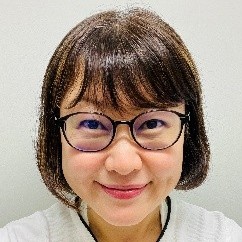
Dr. Kyoung-Sook Kim
The National Institute of Advanced Industrial Science and Technology, Japan
A trajectory generation for an indoor space
Human mobility simulation and trajectory generation are critical for urban planning, transportation management, and privacy-preserving mobility analysis. While deep generative models, such as GANs and VAEs, can synthesize mobility data, they often fail to capture complex environmental constraints and diverse spatiotemporal patterns, thereby limiting the realism of pedestrian trajectory simulations. In this presentation, I will share a diffusion-based generative framework to adapt the U-Net architecture for noise prediction across diffusion timesteps and to incorporate indoor map and spatial density encoders to capture fine-grained spatiotemporal characteristics in indoor environments.
Biography
Kyoung-Sook Kim is Deputy Director at the Intelligent Platforms Research Institute, AIST Japan. Her work focuses on spatiotemporal data platforms, big data analysis, and AI/data quality. She leads the ISO/IEC 5259-2 project and contributes to international standards on AI data ecosystems and smart cities. Previously, she was a researcher at NICT Japan (2007-2014). She co-chairs the Moving Features SWG, GeoAI DWG, and Urban Digital Twins DWG at the Open Geospatial Consortium (OGC), and actively participates in ISO/IEC JTC 1/SC 42, IEC SyC Smart Cities, and ISO/TC 204 working groups.
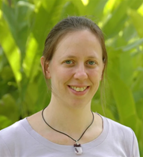
Dr. Sabine Graf
Athabasca University, Canada
AI and Education: From AI support to AI-human collaboration
AI has tremendous potential, but its greatest potential is not to do work for us, but with us. In this talk, we will dive into the area of AI and education and explore how AI can support learners and educators as well as work in partnership with them to improve learning and teaching. When building effective and smart learning environments that are inclusive and consider the needs of all learners, diverse perspectives are of utmost importance, particularly in the design and evaluation of the underlying AI approaches. In this talk, we will discuss how AI can help to consider each individual learner's needs by analyzing behavioral and other data from learners and educators to find characteristics of learners as well as behavior patterns that lead to success or failure. In addition, we will introduce several smart learning environments that consider such individual differences, provide personalized recommendations, and encourage learners and educators to reflect on their activities. We will start with learning environments that focus on supporting learners and/or educators through personalized recommendations and adaptive interfaces and then investigate smart learning environments that work together with learners or educators to better understand their needs and provide better personalization.
Biography
Sabine Graf is a Full Professor in Canada whose research focuses on making learning and information systems more personalized, intelligent, and data-driven. Her research aims at making information systems, especially learning systems, more personalized, intelligent and adaptive, as well as enabling those systems to make use of the huge amounts of collected data to provide decision makers (e.g., students, teachers, etc.) with actionable information. Her expertise includes adaptivity, personalization, AI, user modeling, and learning analytics. She has authored over 150 peer-reviewed publications with 10,000+ citations, including four best paper awards. Dr. Graf is frequently invited to present her work at international conferences, universities, and companies.
Women in a Smart World Session II - Panel Discussion
Telus Convention Centre - Macleod Hall B & C
Thursday August 21, 2025
2:15pm - 3:45pm
Join us for a panel discussion on how diversity and gender equity shapes inclusive human-AI partnerships.
As smart technologies become deeply embedded in how we live, work, and
connect, it is essential that the design and deployment of these
innovations reflect the diversity of the societies they serve. This
panel discussion, which is aligned with the theme of this Congress
"Convergence of Minds: Forging Human-AI Partnerships Across
Disciplines", together with discussions emerging from presentations of
AI researchers yesterday, will highlight the leadership and
perspectives of women who are shaping a more inclusive and equitable
smart world. By sharing a window to various fields in emerging
technologies and engineering, the panelists will share insights at
various stages of their career journey and how they have shaped
inclusive and systemic change in a smart world.
Representing fields such as AI policy and development, digital health,
education, urban innovation, and ethics, our panelists will explore
how women's participation across disciplines strengthens human-AI
partnerships and ensures that emerging technologies are built with
empathy, accessibility, and social impact in mind. By championing
gender equity and intersectional inclusion, this discussion will show
how women are advancing technologies that not only solve problems—but
also uplift communities and drive systemic change.
Panelist Biographies

Panel Moderator
Dr. Rossitza Marinova
Concordia University of Edmonton, Canada
Biography
Rossitza Marinova has been a faculty member at Concordia University of Edmonton since 2004. Before joining Concordia, she worked as a research scientist in the software development industry in Canada and in a government research laboratory in Japan. Dr. Marinova is a Senior Member of the IEEE.
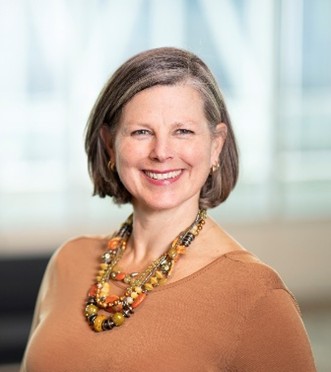
Terri Steeves
APEGA President Terri Steeves, FEC, FGC (Hon.), P.Eng., ICD.D.
Biography
APEGA President and professional engineer Terri Steeves is a strategic
leader who honed her technical competence through design engineering,
field operations, and system design in her more than 30 years at TC
Energy. She has held a variety of progressively senior roles,
including vice-president, within the natural gas pipelines and energy
business units.
An active volunteer in industry and the engineering community, Steeves
has been a mentor and coach for young professionals through many
organizations, including APEGA, the University of Calgary, the
Construction Owners Association of Alberta, the United Way, and TC
Energy.

Dr. Rosy Luo
Founder and CEO, Raygen Innovation, China
Biography
With a Ph.D. from the University of Nottingham and an M.Sc. from Vanderbilt, Rosy Luo is a visionary leader in AI and robotics. She has led roles as an AI Architect in autonomous driving, Head of Perception Algorithms for UBTECH’s humanoid robot Walker, and Technical Lead at SANY International Research Institute. A pioneer in China's robotics scene, her teams have won RoboCup awards, and her work has advanced synthetic data use in mass production. In 2024, she founded Raygen Innovation to drive human-robot collaboration and explore transformative AI applications across industries.
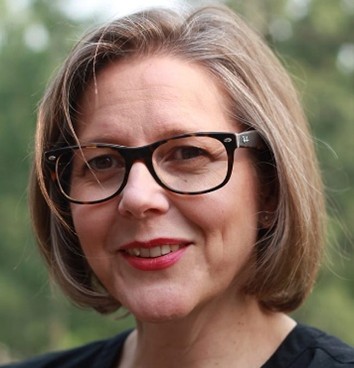
Dr. Stella George
Athabasca University, Canada
Biography
Stella George, BSc.(hons), Ph.D. is an associate professor in the School of Computing and Information Systems at Athabasca University. She earned her PhD in AI in 1995 and worked in the application of AI in the financial sector in the late 1990s. Stella has worked with faculty, managers and student in leadership skill development. Stella returned to academia in 2019, joining the School of Computing and Information Science at Athabasca University to research the impact of AI on society and education.
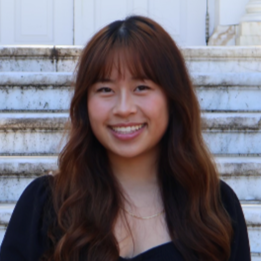
Eunice Leung
Johns Hopkins University, USA
University of Calgary, Canada
Biography
Eunice Leung is an undergraduate student at Johns Hopkins University majoring in Chemical and Biomolecular Engineering. Her research spans neurobiology and biomechanics, focusing on improving human health. She studies protein pathways in Alzheimer’s at the Johns Hopkins School of Medicine and gait dynamics related to prosthesis use at the University of Calgary. Eunice is also a dedicated STEM advocate. She co-founded STEMinmotion, mentors first-generation students, and leads outreach for a student-run research journal. From lab work to community engagement, she’s committed to making science more inclusive and impactful.
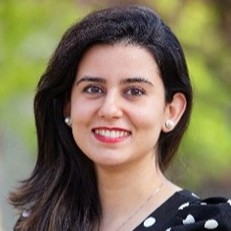
Mahnoush M. Jahromi
University of Calgary, Canada
Biography
Mahnoush M. Jahromi is a PhD candidate in Geomatics Engineering at the University of Calgary, with an MSc in Biomedical Engineering and a BSc in Electrical Engineering. She brings over eight years of industry experience in firmware and AI-driven IoT systems. Her research focuses on developing an IoT framework for real-time health monitoring of workers, integrating biomedical and geomatics approaches. Passionate about occupational health and safety, she aims to advance sustainable human performance. Mahnoush has been recognized for research commercialization and actively participates in innovation programs like Launchpad and Evolve to Innovate.

Dr. Runhe Huang
Hosei University, Japan
Biography
Runhe Huang received her B.Sc. in Electronics Technology from the National University of Defense Technology, China, in 1982, and her Ph.D. in Computer Science and Mathematics from the University of the West of England, UK, in 1993. She is a full professor at Hosei University, Japan since 2003. She served as the head of the Department of Computer Science from 2008 to 2010 and currently holds the position of Deputy Director at Hosei University Library.
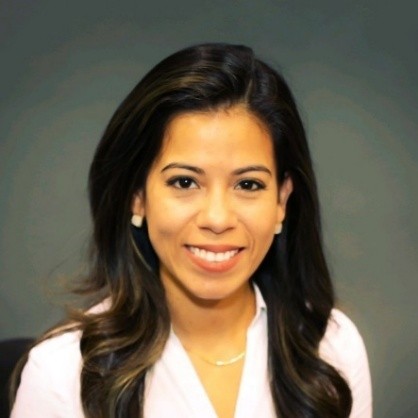
Dr. Tatiana Cardona Sepulveda
Saint Louis University, USA
Biography
Dr. Tatiana Cardona currently serves as an Assistant Professor at Saint Louis University. With prior roles as an Assistant Teaching Professor at Ball State University and a Visiting Professor at Tech. Institute of Monterrey, she's experienced in instructing undergraduates and graduates in Information Systems, Project Management, and Optimization Models. Her academic journey includes a PhD in Systems Engineering from Missouri University of Science and Technology, complemented by a Master's in Engineering Management and Lean Six Sigma certification.
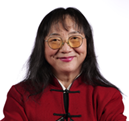
Dr. Xiaohua Feng
University of Bedfordshire, United Kingdom
Biography
Dr Xiaohua Feng is a Senior Lecturer at School of Computer Science and Technology with expertise in Computer Security, Networked System, AI, Data Science, Computer Law and Machine Leaning/Deep Leaning; focusing on Computing education and pedagogics. She has been investigating machine learning models for cyber security cases several AI-driven methods for comms systems. She is currently working on some projects on AI driven models. Currently, Dr Feng is the Ethical Officer of School of Computer Science and Technology
Chair for Sessions I and II

Dr. Lisa Carter
Associate Professor
Athabasca University, Canada
Biography
Lisa Carter is an Associate Professor at Athabasca University's Faculty of Science and Technology. She has held progressive leadership roles, with the most recent as inaugural Dean for two terms. She has led major initiatives such as creating state-of-the-art research and teaching labs, launching an online architecture program, and developing online science courses. Dedicated to advancing STEM outreach, she has also supported faculty and staff growth and champions the fostering of capacity building in rural Alberta communities.
IEEE SWC 2025 Colocated Conferences
IEEE ScalCom 2025
The 25th IEEE International Conference on Scalable Computing and Communications
ViewSponsors





